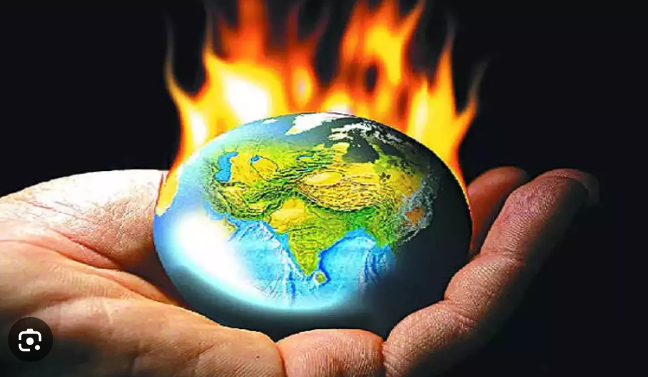Title: Addressing the Urgency of Global Warming: A Call to Action for a Sustainable Future
Introduction: Global warming, driven by human activities such as the burning of fossil fuels and deforestation, poses an existential threat to our planet's ecosystems and inhabitants. The rise in greenhouse gas emissions has led to a warming climate, resulting in melting ice caps, rising sea levels, extreme weather events, and biodiversity loss. In this essay, we will examine the causes and consequences of global warming and explore solutions to mitigate its impacts and secure a sustainable future for generations to come.
Causes of Global Warming: At the heart of global warming lies the accumulation of greenhouse gases in the Earth's atmosphere, primarily carbon dioxide (CO2), methane (CH4), and nitrous oxide (N2O). These gases trap heat from the sun, leading to a warming effect known as the greenhouse effect. Human activities such as the burning of fossil fuels for energy production, transportation, and industrial processes are the primary drivers of greenhouse gas emissions. Additionally, deforestation and land-use changes contribute to the release of CO2 into the atmosphere, further exacerbating the problem.
Consequences of Global Warming: The consequences of global warming are far-reaching and profound, impacting ecosystems, economies, and human well-being worldwide. Rising temperatures have led to the melting of polar ice caps and glaciers, resulting in rising sea levels and coastal erosion. Extreme weather events such as hurricanes, droughts, and heatwaves are becoming more frequent and severe, threatening food security, water resources, and infrastructure. Moreover, shifts in climate patterns are disrupting ecosystems, leading to biodiversity loss, species extinction, and ecosystem collapse.
Mitigation Strategies: Addressing global warming requires urgent and concerted action at local, national, and international levels. Mitigation strategies aim to reduce greenhouse gas emissions and transition to a low-carbon economy. Key measures include:
- Transitioning to renewable energy sources such as solar, wind, and hydroelectric power to reduce reliance on fossil fuels.
- Improving energy efficiency in transportation, buildings, and industries through technological innovation and policy incentives.
- Enhancing carbon capture and storage technologies to remove CO2 from the atmosphere and mitigate emissions from industrial processes.
- Promoting sustainable land-use practices such as afforestation, reforestation, and sustainable agriculture to sequester carbon and protect ecosystems.
- Implementing policies and regulations to limit emissions, promote clean energy development, and incentivize sustainable practices across sectors.
Adaptation and Resilience: In addition to mitigation efforts, adaptation and resilience measures are essential for coping with the impacts of global warming and building resilient communities. This includes:
- Investing in climate-resilient infrastructure and disaster preparedness to minimize the impacts of extreme weather events and sea-level rise.
- Enhancing water management and conservation practices to ensure access to clean water and mitigate droughts and floods.
- Supporting vulnerable communities, particularly in developing countries, with adaptation measures such as climate-smart agriculture, sustainable livelihoods, and access to healthcare and social services.
- Fostering international cooperation and collaboration to share knowledge, resources, and technology for climate adaptation and resilience building.
Conclusion: In conclusion, global warming poses a grave threat to the planet's ecosystems, economies, and inhabitants, requiring urgent and decisive action to mitigate its impacts and secure a sustainable future. By addressing the root causes of global warming, transitioning to renewable energy sources, promoting sustainable practices, and building resilience to climate impacts, we can collectively work towards a more resilient, equitable, and sustainable world for present and future generations. As stewards of the Earth, it is our responsibility to take bold and decisive action to address the urgent challenge of global warming and safeguard the planet for generations to come.

